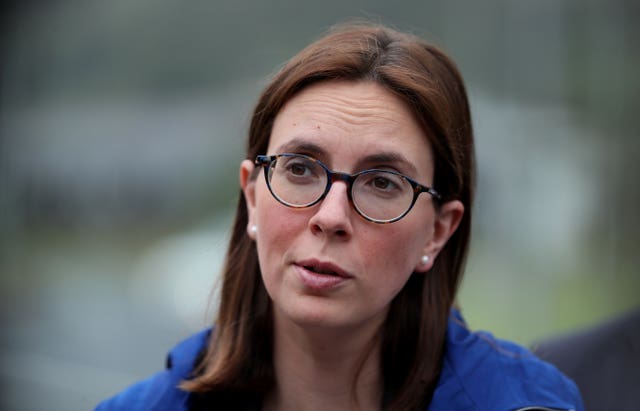European Union vessels will see their access to UK fishing grounds reduced and there is no prospect of using the industry as a “bargaining chip” in trade talks, George Eustice said.
The Environment Secretary said the UK had a “strong hand” and claimed that Germany and other EU countries without a strong interest in access to British waters would prevent France from derailing trade talks over the issue.
He confirmed that the Government had increased its fleet of patrol vessels to monitor UK waters and officials played down the impact of a possible blockade of French ports by the country’s trawlers if they saw their access to British fishing grounds restricted.
Mr Eustice said the UK was seeking an arrangement with the EU similar to Norway’s, with annual negotiations based on the scientific evidence on fish stocks, but possibly a multi-year framework on access.
But if no deal could be reached by the end of June, the deadline set out as part of the Brexit divorce deal, then the UK will rely on its automatic status as an independent coastal state from January 1, 2021 to determine access arrangements.
Partnership agreement
Mr Eustice said he was “optimistic” about reaching a partnership agreement.
But he told a Lords committee: “If it were the case that a partnership agreement couldn’t be concluded by July then it would be, under international law, the case in any event that we would become an independent coastal state and we would automatically take back control of our exclusive economic zone and that there would be an obligation on both us and the European Union to work towards a sensible annual negotiation at the end of this year.”
Prime Minister Boris Johnson has said he wants to ensure “that British fishing grounds are first and foremost for British boats”.
Mr Eustice said: “There will be some reduction in access, not least in the six-12 mile zone. But it’s too early to say what access we would grant.”

France’s Europe minister Amelie de Montchalin has insisted that fishing rights are linked to the possibility of a trade deal and warned that negotiations could turn into “a very nasty battle”.
Brussels’ chief negotiator Michel Barnier has also said there cannot be a deal without an agreement on fishing rights.
But Mr Eustice told peers: “There really isn’t a precedent of linking a trade deal in the round with sacrificing or forfeiting your right as an independent coastal state.”
Wider trade deal
He claimed that manufacturing interests in Germany and Italy would prevent the issue becoming a stumbling block to the wider trade deal.
“The member states that are are quite dependent on access to our waters are France – the Normandy fleet has quite a lot of access – Ireland, to a lesser extent the Netherlands and Belgium.
“After that, there are many, many other member states who don’t have access to our waters or our stocks. It would be quite a big ask for countries like Italy and Germany, who don’t really benefit from access to UK waters, to say we are actually going to jeopardise a trade deal on all those important industrial goods that they do seek access to the UK market for.
“I’m not sure it’s sustainable for the EU to hold to the position that some member states have been articulating.”
Mr Eustice said the UK had “significantly increased” its enforcement capabilities to monitor fishing access, with three new Royal Navy offshore patrol vessels and a decision not to decommission old ones, extra private sector vessels and an aerial surveillance contract.
There are concerns that ports on the French coast including Boulogne and Calais could be the site of protests aimed at preventing UK vessels landing their catches to access the EU’s markets if they are unable to fish in British waters.
Neil Hornby, the marine and fisheries director at the Department for Environment, Food and Rural Affairs, acknowledged the risk of blockades.
“If there were to be blockades of ports in France, the French authorities would be expected to deal with that, be that Calais or Boulogne or others,” he said.
Former diplomat Lord Kerr suggested that if there was a trade deadlock, the French authorities “might not be devoting tremendous political effort to clearing the port”.
Mr Hornby said for British vessels access to Boulogne was “not something they completely rely on” and they could head elsewhere, including UK ports.
But if there were problems at Calais – the main port for cross-Channel trade – “I don’t think the French authorities would be wanting to see that happen either”.
Related – Post-Brexit UK-US trade deal could boost economy by 0.16%, Government predicts

